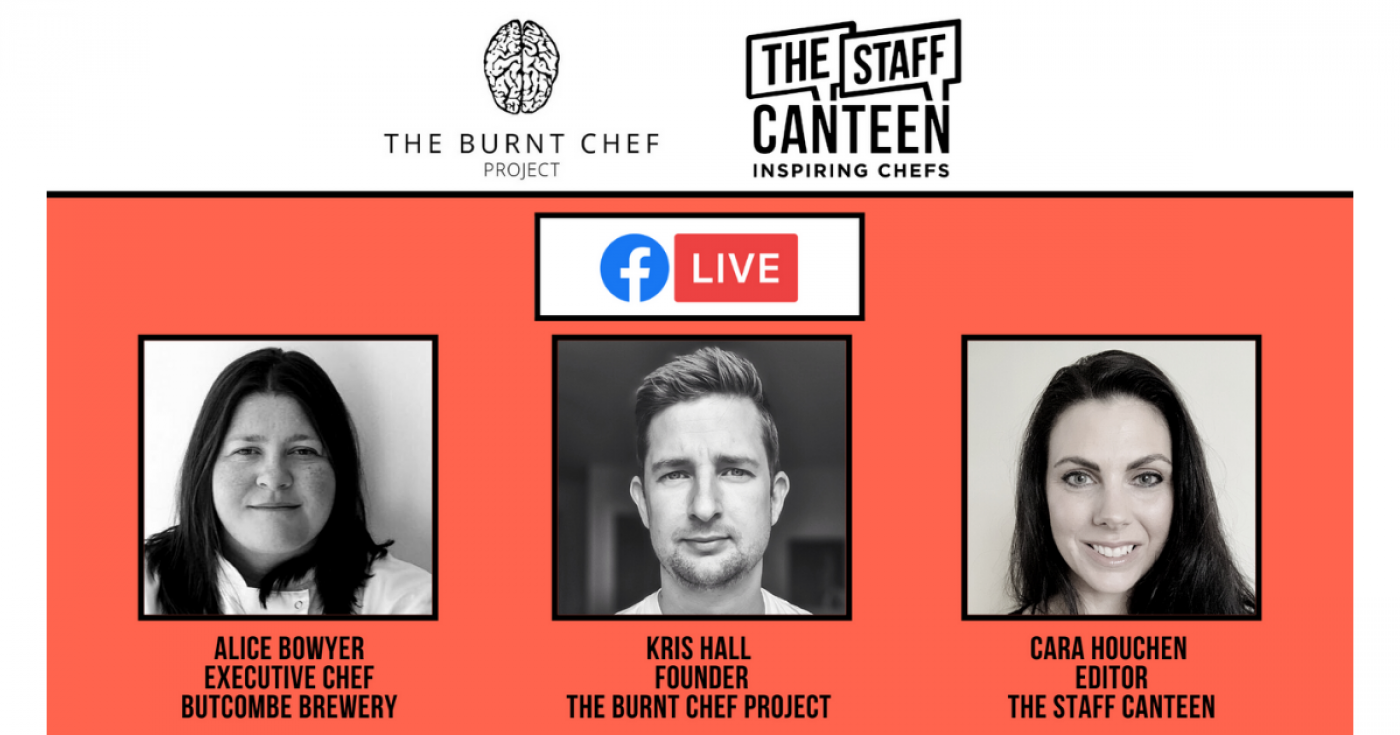'It just wasn't working for me anymore, and I just had to be really honest'
It is not breaking news that a passion for the hospitality industry doesn't make you impervious to the implications of working in a kitchen, and the effects they might have on your mental health.
In the latest of a series of discussions about mental health in the hospitality industry, Peter Tofis, an ex-chef and current catering company manager shared his insights with TSC editor Cara Houchen and Kris Hall, co-founder of The Burnt Chef Project. He explained that his love for the industry endures, despite having left the kitchen.
The chef worked at Chewton Glen in Dorset prior to the lockdown - which is when he realised that for the sake of his mental wellbeing, he had to make a change.
"When you're working, when you're in the moment, you don't notice it really," he said.
"You're constantly just working away and time flies by and life flies by."
Peter describes the first three weeks of lockdown as "horrendous."
"I didn't know what to do with myself," he chuckled. "I went from 100 miles an hour to 0 in a day.
"I was just sat around, looking around, thinking: 'What do I do'?"
What this made him realise, is that he'd worked himself into a frantic state where he had been entirely disconnected from the quiet of so-called normal life.
"I struggled because I didn't know how to stop. So I would be finding anything to do - anything possible. I had a pristine garden, a washed car, I kept tidying and organising and it was just because I couldn't stop. I didn't know how to."
Kris Hall agreed, and explained: "In order to be in hospitality, you have to have a passion. There's no shying away from it.
"There is a drink and drug culture in hospitality in terms of self-medication, but coming into this industry and working in it, it's a drug in itself. It's a drug that's very difficult to leave."
And logically, what derives from that "is that any hospitality professional who truly loves the industry and has a passion for being within it will hate being off, because they're away from what they love and they're away from what they know."
"You can't enjoy it whilst you've got these concerns, and when you go back into this industry it's even more of a shock to the system because your body - physically and mentally - has become used to getting a bit more rested."
Press pause
After a few weeks of lockdown had elapsed, Peter came to realise that there was plenty else he could spend his time doing - namely with his wife and son.
"I remember thinking to myself: 'This is great."
While the decision to turn his back on the career he had built for himself hurt, he knew that he had to.
"If my heart wasn't in it, I'd be doing my team a disservice," he said.
Speaking of the complicit (and sometimes explicit) agreement that working in hospitality requires entire devotion, he added: "If you're not giving 110 percent because your heart's not completely in it, then it's not fair on them or on the customers that come in and eat, it's not fair on the plate of food that you're providing, because you're not completely committed."
Having realised that he was enjoying life for the first time for as long as he could remember, he had concluded: "It just wasn't working for me anymore, and I just had to be really honest."
He chose to stick with a job in hospitality because it is a sector he still has deep love for, but, he explained: "With regards to being in the kitchen every single day lunch and dinner, I couldn't commit to that. I didn't want to commit to that so I thought it was only fair that I take a step away."
The industry is a great place to be
"I think there's so much to its credit," he said, "namely the friendships and the relationships that you build up."
"It's almost like a bond that can't be broken. You'd do anything to help your team and your colleagues, because throughout your days and your services, you've been in the trenches with them. You've experienced the hard services, the good services, and it feels like you're in it together."
The opportunity to be creative, means that "the world's your limit, you can take a commodity, a piece of produce and you've got free reign, you can do what you like."
There is also the fact that it accepts people from all walks of life; "doesn't matter where you're from, the hospitality industry will take you in, dust you down and send you on your path. It will give you a purpose, and it almost gives you a family."
"Food is a joy. It's an experience, and you're creating that every single day for someone," from casual lunches to special occasions, and you are contributing to that.
The fact of adding something to truly meaningful experiences, he said, "that's really special to be able to say that you do that, day in, day out."




{{user.name}}